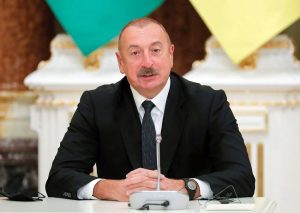Azerbaijan is striving to transform its energy sector, with the country already witnessing a shift as the share of oil in its exports is currently decreasing, says an article by Fiona Harvey, the environmental editor at The Guardian of London.

The author believes that Azerbaijan hopes to transform the energy sector, first at home and then in other oil-dependent economies.
“Holding COP29 in an oil-producing country is not unusual. Last year, the host was the United Arab Emirates, which has the world’s seventh-largest gas reserves. Many other fossil fuel-producing countries have held the presidency: the UK in 2021, Qatar in 2012, Canada in 2005, and Brazil in 1992 when the UN Framework Convention on Climate Change was developed,” the publication states.
The author emphasises that for the Azerbaijani government, there is no contradiction in being an oil and gas exporter while striving to limit global temperatures to 1.5C above pre-industrial levels.
Nigar Arpadarai, who holds an important position in the COP29 team as UN high-level champion, said: “I don’t think that oil-shaming is a good thing. Yes, we are an oil and gas country. This is our history. This is where we are coming from. But we are doing lots of things. We are committing and we have a strong drive towards a new paradigm.”
Progress on the climate crisis would be impossible without engaging oil and gas countries, Arpadarai added. “It’s not the right path, to isolate oil and gas countries. We need to have solidarity. The climate agenda is a global agenda. All countries together need to try to solve the problem,” she said.
Harvey reminded that, last month, Azerbaijan proposed creating a fund for developing countries affected by the climate crisis, hoping that other countries would also contribute to it.
According to her, a key issue at COP29 will be attracting the funding needed by poor countries to reduce emissions and overcome the effects of extreme weather. This will require trillions of dollars a year, but so far, the rich developed world has barely fulfilled its long-standing commitment to provide $100 billion annually, she said.
In conclusion, Fiona Harvey noted that for Azerbaijan, quadrupling renewable energy production from a small base may be just the beginning.
The entire economy of this oil and gas state, like the entire world economy, will have to be restructured, she summarised.
